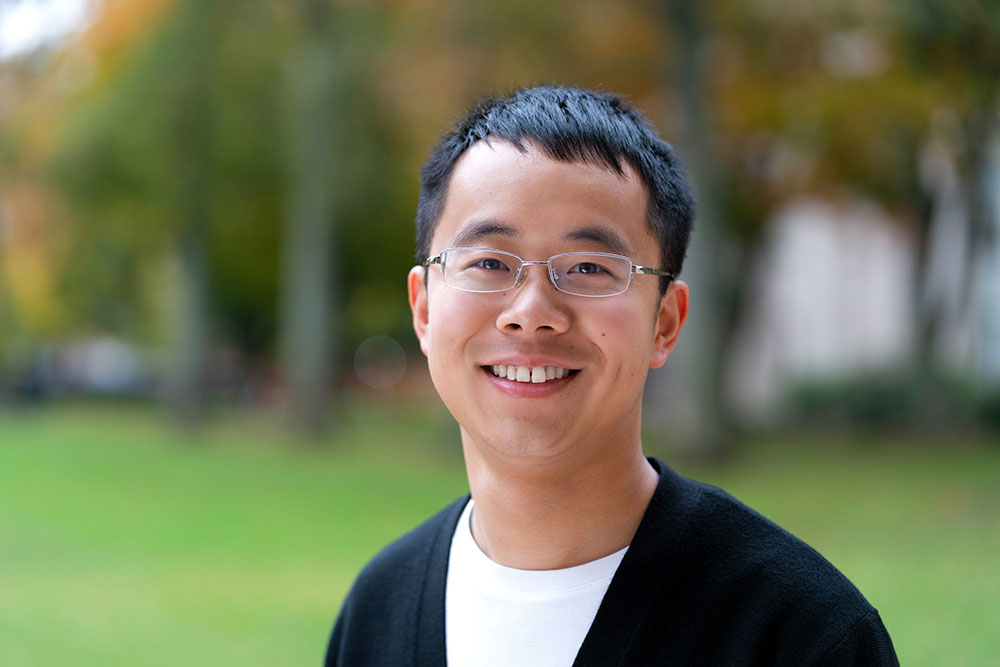NSE alum, Jiayue Wang PhD ’22, wins Julian Baumert Thesis Award

NSE alum, Jiayue Wang, has been awarded the 2022 NSLS-II Julian Baumert Thesis Award. Wang whose current appointment is in the MIT Laboratory for Electrochemical Interfaces, received his PhD in Nuclear Science and Engineering this year, under the supervision of Professor Bilge Yildiz.
Wang’s thesis, “Engineering Functional Defects in Oxides Using External Stimuli”, is centered on two questions that exploit defects in materials. “How do atomic defects control macroscopic materials properties?” and “How to systematically introduce or erase defects in materials to boost their functionalities?”
Precise defect engineering lies at the heart of materials innovations for next-generation technologies. However, due to the enormous span in the length scale (from sub-nanometer to meters), materials design rules concerning these defects have yet to be established. The physical, chemical, and mechanical properties of materials often depend strongly on the functional defects of various dimensionalities, such as vacancies, interfaces, and precipitates. While some defects can be exploited for novel applications (e.g., nitrogen-vacancy centers for quantum sensing), others may lead to unwanted materials degradation (e.g., radiation damage in nuclear plants). Wang’s research integrated synchrotron characterization, multi-scale modeling, and novel defect manipulation (such as irradiation, strain, and electrochemistry) to advance understanding of and to engineer atomic defects in contexts of clean energy and fuel conversion.
The work was conducted in part at the National Synchrotron Light Source (NSLS-II) facility in Brookhaven National lab. The cutting-edge synchrotron facilities at NSLS-II create a unique ecosystem for this research. Wang’s measurements at NSLS-II uncovered the critical defect configurations that determine materials’ performance in catalysis and self-assembly. Based on these fundamental insights, he has developed generalizable defect engineering methods to make existing electrochemical devices more efficient and durable for decarbonization. The findings and methodologies provided in Wang’s thesis help to establish a powerful platform for both the science of defects and the engineering of atom-precise materials, which can benefit a broad range of defect-sensitive applications (e.g., quantum computing and commercial fusion energy).
Established in 2008, in memory of Brookhaven physicist Julian David Baumert, whose work focused on x-ray studies of soft-matter interfaces at the National Synchrotron Light Source, the award is presented annually to a researcher who has recently conducted a thesis project that included significant measurements at NSLS-II.
May 2022
